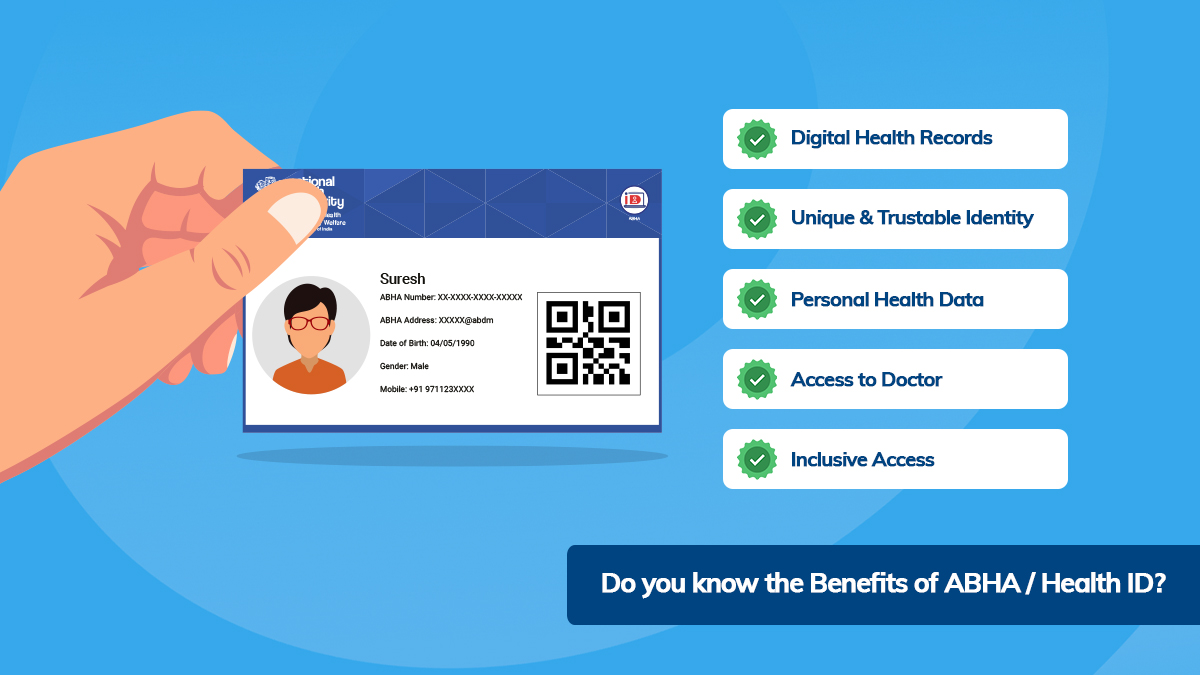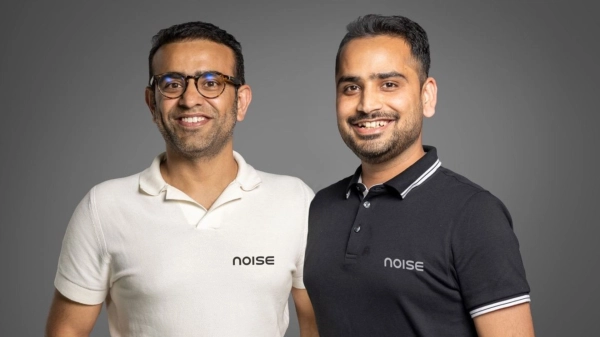How ROI Expectations Are Keeping EHR Adoption Low in Indian Hospitals

While the US and European countries started adopting EHR as early as the 1960s, in India it is still a relatively newer concept.
The healthcare landscape in India is rapidly transforming on the back of digital and technological integration. The digital health ecosystem in India is developing solutions that make modern healthcare delivery efficient, and convenient thereby improving patient experience.
But all of this is dependent heavily on the availability of patient data in digital format or Electronic Health Records (EHR). To simplify further, consider this, if digital healthcare delivery is a tall building, then EHR is the foundation stone.
While the US and European countries have started adopting EHR as early as the 1960s, in India it is still a relatively newer concept.
According to a market research report, India's EHR market size was valued at $514 million in 2022.
The study also suggested that it is estimated to expand at a CAGR of 7% from 2022 to 2030 and will reach $884 million in 2030.
The Indian govt too has been pushing towards incentivizing patient data digitization.
While the majority of the private hospitals in India have adopted EHR in some form or the other, public healthcare institutions which form the backbone of healthcare in India, still have an untrodden path to travel.
EHR: A Step Towards Better Healthcare Delivery
According to MohFW, EHR is a collection of various medical records that are generated during any clinical encounter or events stored digitally. The aim is to have a detailed timeline view of health-related events of an Individual throughout his/her life.
The EHR stored digitally can empower physicians to have a comprehensive view of a patient's health history and enable them to provide evidence-based care, aid faster and accurate diagnosis, and timely treatment, and lower the cost of care by eliminating repeated investigations.
With the rise of 24x7 selfcare devices/wearable devices, a huge amount of data related to various metrics of a person’s health is being generated. This data can be used to identify patterns and build analytics tools including predictive analytics which will enable personalized healthcare.
Even though EHR presents the potential to transform the way healthcare is delivered, many Indian hospitals face barriers to its adoption, owing to multiple factors.
Challenges in EHR Adoption
a) Inadequate Infrastructure
One of the major challenges in the adoption of EHR is the lack of supporting infrastructure. Even today, barring the bigger ones, many hospitals lack the necessary ICT infrastructure, including connectivity and computers, which is essential for the successful implementation of EHR systems.
Surjeet Thakur, CIO of Kochi-based Rajagiri Hospital and founder CEO of TrioTree Technologies explained how infrastructure planning poses practical challenges for EHR adoption.
For Example, in OPD setting, EHR adoption essentially means printing prescriptions. While most hospitals equip doctors with laptops/computers, where to print the prescription is always a challenge.
“Whether you give a printer in all the doctor's chambers which inflates the cost and manageability versus whether you give a printer at a centralised nursing station which will require extra manpower of someone going and getting the prescriptions from the printout and handing over to the patients. Until the time that is not done, the patient is inside the room, and the doctor can't take the other patients,” Thakur noted.
On the other hand, in the case of IPD, if a doctor wants to access records, if I want to access the record, the hospital has to use Wi-Fi because it is challenging to have a network point, a workstation, or a laptop installed at each patient's side.
“From an IPD setting, a stable Wi-Fi network, connecting devices like tablets or laptops are an absolute must. These are required from a clinician and nurses’ perspective,” Thakur added.

b) The Cost Conundrum
According to Dr Sidharth Ramesh, founder, Medblocks, most Indian hospitals use EMR- Electronic Medical Record, a basic form of EHR coupled with data Management systems tailor-made for various departments including HIMS (Hospital Information Management System), LIMS (Laboratory Information Management System) or RIS (Radiology Information System).
“When you see EMRs, the hospitals that do EMRs relatively well, usually offer the billing HIMS plus some sort of a basic EMR,” Ramesh said.
A study published by Biomedical Journal of Scientific and Technical Research in 2021 reveals that of the 13 private and two public hospitals studied only eight had the EMR system to record clinical data while the other five used some kind of HIS for billing and inventory control.
In remote or rural areas, however, the adoption of digital record-keeping of patient data becomes even more trickier owing to a lack of basic infrastructure including continuous internet connection and adequate ICT infrastructure.
India is considered a price-sensitive market. The Healthcare IT market is no different. The Medblocks founder noted that most hospitals still hesitate to invest in digital infrastructure because of the high cost of investment and lower immediate ROI.
“It comes down to the incentives and what the hospitals are looking for in the system. So, for most of them, at least today, it seems that the billing systems are providing that value to expense much better,” Ramesh stated.
Thakur, on the other hand, agreed that financial constraints become one of the pertinent roadblocks in the adoption of EHR. “It is an investment for the hospitals. However, there is no direct way to measure the return on investment. And that is where the challenge for the hospital comes from,” he added.

c) Behavioral Change
The EHR adoption does not only signify a digital shift but also requires a shift in the behavior of the stakeholders. Most clinicians even today are reluctant to adopt electronic record-keeping methodologies as they believe it will increase the burden on them.
Thakur informed that clinicians are reluctant to shift to digital records or learn new technology because paper records are easy for them.
“This is how I've been practicing medicine for the last 25 years. That’s what they tell us,” he said.
According to him, clinical adoption and change management are critical aspects of EHR adoption since successful adoption requires bringing behavioral change in the way doctors work.
However, he believes the attitude towards adopting EHR is changing rapidly, because of increased litigations and requirements of continuous medical education.
The COVID-19 pandemic, when accessing paper records became a major challenge, also led to the necessary push toward realizing the need for digitization.

d) Interoperability
With the wave of digital transformation, interoperability is another key challenge that Indian hospitals will soon have to face.
Interoperability refers to the ability of different systems, products, or entities to connect, communicate, and exchange information seamlessly without constraints. This concept is crucial to facilitate efficient data sharing and collaboration.
While most Indian hospitals use EMR which is limited to specific healthcare providers or institutions, especially in fully integrated EHR, where data is exchanged between two different healthcare entities, interoperability becomes a major concern.
Dr Chandil Kumar, Chairman of HL7 India said absence of an established data exchange standard has made seamless data exchange a challenge.
“The absence of a mandate by the stakeholders and the overall resistance to share data is a major challenge. Despite the availability of standards such as the HL7 ,which incidentally is free in India, the adoption is not very encouraging,” he said.
At a recent patient safety conclave, Gautam Khanna, CEO, PD Hinduja Hospital emphasized that interoperability is going to be a major concern in the next few years for Indian Hospitals.
“Everyone wants to tell you their software is the best and will make your hospitals smart. Then you implement it and the neighboring software isn’t talking to it and the third one doesn’t work with the first one. So, we need to ask whether the new technology is compatible with the existing data systems,” Khanna shared.

ABDM & Future Outlook
Despite these challenges, stakeholders are certain that EHR will become omnipresent in Indian healthcare in the next few years although its completeness and extent would still be debatable.
However, with initiatives such as the Ayushman Bharat Digital Mission (ABDM), there is government and regulatory emphasis on the digitization of healthcare systems.
According to TrioTree CEO, “If you look at these standards like NABH, NABL or GCIA, they give a lot of KPIs. It is not possible for a hospital to manage those KPIs manually. Since more hospitals today are opting for these certifications, they will have to integrate this technology in their workflow.”
Sidharth Ramesh, on the other hand, believes the pace of adoption of EHR in India will follow the same trajectory as that of the US.
“In the US, after they passed the HITECH Act and everybody needed to use an EMR, right after that, the adoption rate increased. What happened then was nowhere comparable to the past 10 or even 20 years. It's like nothing for a long time and then all at once,” he said.

Stay tuned for more such updates on Digital Health News




















